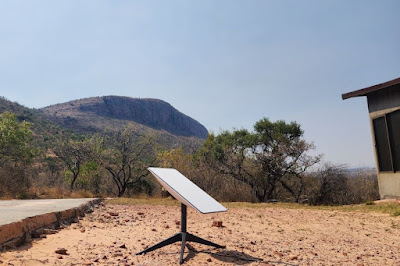Dated Tuesday, 21 November 2023 SUDAN - here is a copy in full:
Sudan: Brutal, targeted attacks on civilians must stop
Patrick Youssef is regional director for Africa at the International Committee of the Red Cross. He has just returned from Sudan, where he met representatives of the government and of the Rapid Support Forces. As the humanitarian situation continues to deteriorate, he is sounding the alarm
Despair and violence have taken over in Sudan. Recent discussions in Jeddah have not resulted in a ceasefire – quite the opposite. Military activity is increasing in many parts of the country. A devastating humanitarian crisis is developing right in front of our eyes.
Weapons bring power. But that power imposes a responsibility on the warring parties – indeed, an obligation – to respect and protect the civilian population, as required by international humanitarian law.
This war has resulted in countless deaths and forced almost seven million people to flee the fighting. ICRC and Sudanese Red Crescent teams receive daily calls for help. Families are asking us to help them evacuate the sick, the wounded or members of their families, because they fear they will be arrested if they move on their own. Some report that members of their families have disappeared. Others describe desperate shortages of food and water. The price of a standard food basket has risen by 60% since April 2023, leaving some 20 million people facing acute food insecurity.
In Darfur, western Sudan, fighting has reached critical levels, affecting the populated areas of the main towns: Al Jeneina, Zalingei and Nyala. Military operations are seriously affecting the functioning of hospitals and depriving people of electricity and telecommunications.
Despite the dangers, we are making every effort to ensure that no-one is abandoned in the areas where we are operating. This week, we sent a surgical team and medical supplies to Al Jeneina University Hospital, where war-wounded patients are in urgent need of treatment.
We are constantly reminding all parties that they must allow the sick and injured to obtain medical care. In particular, this means refraining from harming people who are not participating in the fighting and allowing enemy wounded to receive treatment.
Today, at the request of the parties to the conflict, we have returned over 60 prisoners to their families in Nyala, southern Darfur. We are grateful that we could help reunite those families after months of separation. All these operations underline the importance of the ICRC’s neutrality and of its ability to work with all parties.
But the response is still very limited. Humanitarian organizations can no longer tolerate being prevented from responding to the immense needs in Sudan. International humanitarian law requires all parties to facilitate humanitarian operations.
Simplifying the administrative formalities would be a first step towards this. We therefore reiterate our appeal to all sides, to take concrete, practical steps in line with the commitments they made during the talks in Jeddah.
The people of Sudan have suffered enough. The time has come to guarantee a neutral, impartial humanitarian environment, and to provide aid that will truly meet people’s needs. History has shown that if belligerents comply with the laws of war, there is more hope of peace and reconciliation.
About the ICRC
The International Committee of the Red Cross (ICRC) is a neutral, impartial and independent organization with an exclusively humanitarian mandate that stems from the Geneva Conventions of 1949. It helps people around the world affected by armed conflict and other violence, doing everything it can to protect their lives and dignity and to relieve their suffering, often alongside its Red Cross and Red Crescent partners.
For more information, please contact:
Germain Mwehu, ICRC Wad Madani, +249 912 150 735, gemwehu@icrc.org
Florian Seriex, ICRC Nairobi, +254 110 938 077, fseriex@icrc.org
Halimatou Amadou, ICRC Geneva, +41 79 868 55 83, hamadou@icrc.org
View original: https://www.icrc.org/en/document/sudan-brutal-targeted-attacks-on-civilians-must-stop
[Ends]




